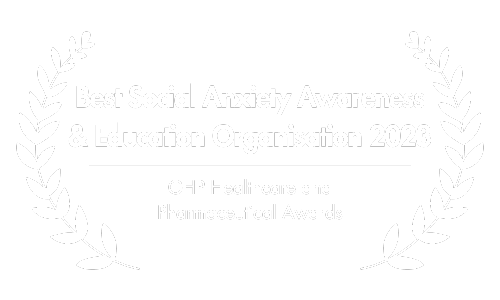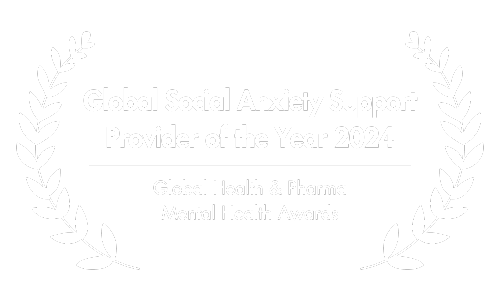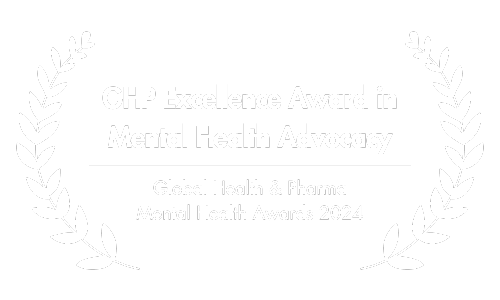The Balancing Act: Benzodiazepines and Social Anxiety Management
Living with social anxiety can be challenging, and seeking effective solutions to alleviate its symptoms is crucial for one’s well-being. In the pursuit of relief, many individuals turn to medication, such as benzodiazepines.
However, it is essential to approach the use of benzodiazepines with utmost caution and a comprehensive understanding of their benefits, limitations, and potential risks.

In this article, we will explore the role of benzodiazepines in managing social anxiety, shedding light on their potential benefits, while emphasizing the vital importance of striking a delicate balance.
It cannot be overstated that the use of benzodiazepines should always be administered by a healthcare professional and should be viewed as a short-term tool rather than a long-term solution.
Misuse or overuse of benzodiazepines can lead to severe consequences, including dependency, tolerance, and potential withdrawal symptoms.
Let us embark on this journey to uncover the intricacies of benzodiazepines and their role in navigating the delicate realm of social anxiety management, with a constant reminder of the potential dangers associated with their misuse or abuse.
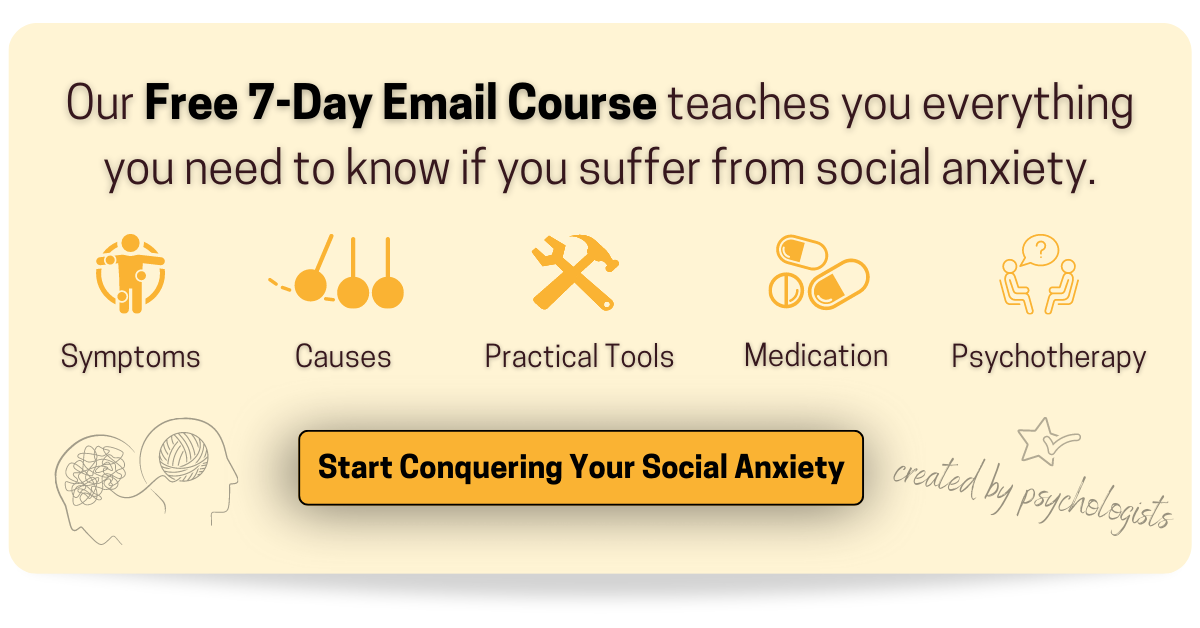
A. Understanding Benzodiazepines
What are Benzodiazepines and how do they work?
Benzodiazepines are a class of psychoactive medications that are commonly prescribed to help manage anxiety, including social anxiety.
The term “psychoactive” refers to substances or drugs that have the ability to affect the functioning of the brain, resulting in changes in perception, mood, cognition, or behavior.
In the case of Benzodiazepines, they exert their psychoactive effects by interacting with the central nervous system.
They target specific receptors in the brain, enhancing the effects of a neurotransmitter called gamma-aminobutyric acid (GABA). GABA is an inhibitory neurotransmitter that helps regulate the activity of neurons in the brain.

By enhancing GABA’s actions, Benzodiazepines promote a calming and sedative effect on the central nervous system.
This can help alleviate anxiety symptoms, including those associated with social anxiety, by reducing excessive neuronal activity and inducing a state of relaxation.
Several Benzodiazepines are commonly prescribed to individuals experiencing social anxiety. It’s important to note that specific medications and dosages should always be determined by a healthcare professional based on an individual’s unique circumstances.

Some common Benzodiazepines used for social anxiety management include:
Alprazolam (Xanax, Niravam): Alprazolam, commonly sold under the brand names Xanax and Niravam, is a short-acting benzodiazepine often prescribed for acute anxiety and panic disorder. It produces a rapid calming effect, making it useful for managing social anxiety in specific situations (Gelernter et al., 1991).
Diazepam (Valium): Diazepam, marketed under the brand name Valium, is a long-acting benzodiazepine that can help reduce anxiety symptoms over an extended period. It is commonly used for generalized anxiety disorder and can be prescribed for short-term relief of social anxiety symptoms (Helmus et al., 2005).
Lorazepam (Ativan): Lorazepam, commonly known by the brand name Ativan, is an intermediate-acting benzodiazepine that is frequently prescribed for anxiety disorders, including social anxiety. It provides rapid relief and can be particularly helpful in managing anxiety symptoms associated with social situations (Melaragno, 2021).
Clonazepam (Klonopin): Clonazepam, marketed under the brand name Klonopin, is another benzodiazepine commonly prescribed for various anxiety disorders, including social anxiety. It offers longer-lasting effects compared to some other benzodiazepines, providing sustained relief from social anxiety symptoms throughout the day (Davidson et al., 1993).
Bromazepam (Lexotan): Bromazepam, sold under the brand name Lexotan, is a benzodiazepine that is also used in the treatment of anxiety disorders, including social anxiety. It has an intermediate duration of action and can help alleviate social anxiety symptoms (Versiana et al., 1997).
The above medications are just a few examples of Benzodiazepines commonly used for social anxiety. It’s important to remember that the choice of medication and dosage should be determined by a healthcare professional based on an individual’s specific needs and considerations.

B. Benefits of Benzodiazepines
Benzodiazepines can be effective in managing the symptoms of social anxiety. They provide relief by reducing feelings of anxiety, fear, and unease, allowing individuals to navigate social situations with greater ease and confidence.
By targeting the central nervous system, Benzodiazepines help alleviate both the emotional and physical symptoms associated with social anxiety.
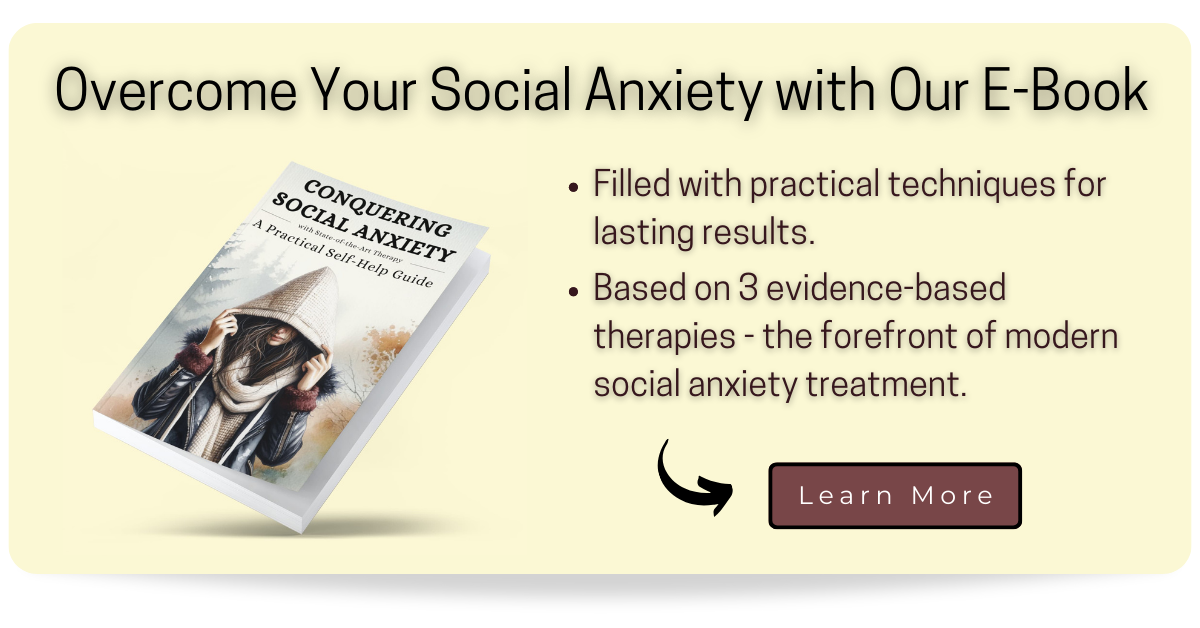
Fast-acting nature for quick relief
One significant benefit of Benzodiazepines is their fast-acting nature. They are designed to provide rapid relief from anxiety symptoms, making them particularly useful in situations where immediate relief is necessary.

If you anticipate a challenging social event or experience intense anxiety symptoms, Benzodiazepines can help provide quick relief, enabling you to cope with the situation more comfortably.
Calming effect and reduction of physical symptoms
Benzodiazepines have a calming effect on the central nervous system, which can help alleviate the physical symptoms commonly experienced by people with social anxiety. These physical symptoms may include a rapid heartbeat, trembling, sweating, and muscle tension.
By reducing the physiological arousal associated with anxiety, Benzodiazepines can help individuals feel more at ease and in control during social interactions.
It is important to note that while Benzodiazepines can offer significant benefits for managing social anxiety symptoms, they are not a cure.
They provide temporary relief and should be used judiciously as part of a comprehensive treatment plan that may include therapy, lifestyle changes, and other strategies.

C. Limitations and Risks
Importance of short-term use and risks of long-term use
It is crucial to understand that Benzodiazepines should be used as a short-term solution for social anxiety. Long-term use of Benzodiazepines can lead to various risks and complications.
These medications are not intended for extended use due to the potential for developing dependence and tolerance, as well as other adverse effects (Hindmarch, 2009).
It is important to follow the prescribed duration and dosage, as recommended by a healthcare professional.
Potential for dependence, tolerance, and withdrawal symptoms
One of the significant risks associated with Benzodiazepines is the potential for dependence. Prolonged use or misuse of these medications can lead to physical and psychological dependence, where the body becomes accustomed to the drug’s presence.

This can result in tolerance, requiring higher doses to achieve the same effect, and making it difficult to discontinue the medication without experiencing withdrawal symptoms. Withdrawal symptoms may include rebound anxiety, insomnia, irritability, and in severe cases, seizures.
Sedative effects and impact on cognitive function and alertness
Benzodiazepines are known for their sedative effects, which can cause drowsiness, fatigue, and impair cognitive function.
These medications can affect alertness, concentration, and coordination, making tasks that require mental clarity and physical coordination potentially unsafe.
It is important to use Benzodiazepines with caution, especially when driving, operating machinery, or engaging in activities that demand mental focus and physical coordination.
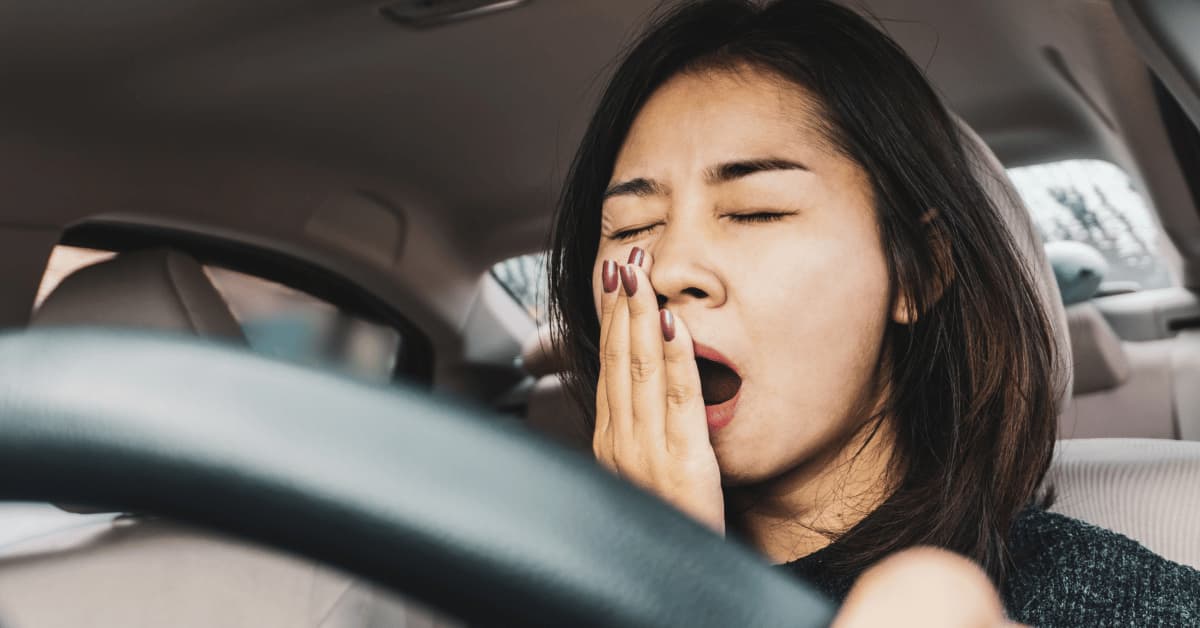
Understanding the limitations and risks associated with Benzodiazepines is vital for responsible use.
Again, it is crucial to work closely with a healthcare professional, who will monitor your progress, evaluate the benefits and risks, and determine the most appropriate treatment plan for your social anxiety.

D. Proper Usage and Precautions
Taking Benzodiazepines as prescribed by a healthcare professional
It is of utmost importance to emphasize that Benzodiazepines should only be taken as prescribed by a healthcare professional. These medications are not meant for self-medication or casual use.
Your doctor will assess your specific needs, medical history, and individual circumstances to determine the appropriate medication and dosage for your social anxiety.
It is crucial to follow their guidance and instructions meticulously.
Following the recommended dosage and duration of use
Adhering to the recommended dosage and duration of Benzodiazepine use is crucial for safety and effectiveness.
Avoid exceeding the prescribed dosage or extending the duration of use without consulting your healthcare professional.

They will prescribe the appropriate dosage based on your needs and will also provide guidance on when and how to adjust or discontinue the medication if necessary.
Informing the prescribing doctor about other medications or health conditions
It is essential to inform your prescribing doctor about any other medications you are taking, including over-the-counter medications, herbal supplements, or other prescription drugs.
Certain medications may interact with Benzodiazepines, potentially leading to adverse effects or reduced effectiveness.
Additionally, disclosing any underlying health conditions or allergies will help your doctor make informed decisions regarding the use of Benzodiazepines for your social anxiety.
By taking Benzodiazepines as prescribed, following the recommended dosage and duration, and keeping your doctor informed about your health profile, you can ensure the safe and effective use of these medications in managing social anxiety.

E. Alternatives and Complementary Approaches
Alternative Medication Options for Social Anxiety
While Benzodiazepines can be effective in managing social anxiety for short-term relief, it’s worth exploring alternative medication options that may be considered in certain cases.
It’s important to note that the suitability of these alternatives depends on individual circumstances and should be discussed with a healthcare professional.
Some alternative medication options for social anxiety include:

Selective Serotonin Reuptake Inhibitors (SSRIs)
SSRIs are a class of antidepressant medications that can be prescribed to manage social anxiety. They work by increasing the levels of serotonin, a neurotransmitter associated with mood regulation, in the brain.

SSRIs are typically used as a long-term treatment option and may require several weeks to achieve optimal effectiveness. For more on SSRIs for social anxiety, you can click here to read our comprehensive guide.
Serotonin-Norepinephrine Reuptake Inhibitors (SNRIs)
SNRIs are another class of antidepressant medications that may be considered for social anxiety.
Similar to SSRIs, they work by increasing the levels of serotonin and norepinephrine in the brain. SNRIs are also typically used as a long-term treatment option.
For a thorough understanding of SNRIs, you can click here to read our full guide.
Beta-Blockers
Beta-blockers are a type of medication that primarily target physical symptoms of anxiety, such as rapid heartbeat, trembling, and sweating, by blocking the receptors associated with stress responses.

While they do not directly address the underlying psychological aspects of social anxiety, they can be helpful in managing the physical manifestations associated with anxiety during specific situations, such as public speaking or performance anxiety.
For in-depth insights into using beta-blockers to manage social anxiety, explore our comprehensive article by clicking here.
Less frequently used options: MAOIs & RIMAs
If you’d like to learn more about two less common but also effective options for social anxiety, click here to read more about MAOIs for social phobia, or here to learn more about RIMAs.
Also, if you’d like to delve deeper into the topic of medication for social anxiety, we invite you to explore our comprehensive guide by clicking here. It provides further insights and information on various medication options and their role in managing social anxiety.
CBD: A natural, non-addictive alternative with fewer side effects
For individuals seeking an alternative approach to managing social anxiety with potentially reduced risks and fewer side effects, CBD (cannabidiol) has gained attention as a natural option worth considering.
CBD is a non-psychoactive compound derived from the cannabis plant that has shown promise in alleviating anxiety symptoms.

Research suggests that CBD may help regulate the endocannabinoid system, which plays a role in mood regulation and stress response (Fliegel & Lichenstein, 2022).
By interacting with specific receptors in the brain, CBD may help reduce anxiety and promote a sense of calmness without inducing psychoactive effects.
To learn more about CBD as a potential option for social anxiety management, we invite you to explore our extensive article dedicated to CBD and its effects on social anxiety by clicking here.
This article delves into the science behind CBD, its potential benefits, recommended dosage guidelines, and important considerations. We also offer a specific recommendation for a CBD product that has been well-received by individuals with social anxiety.
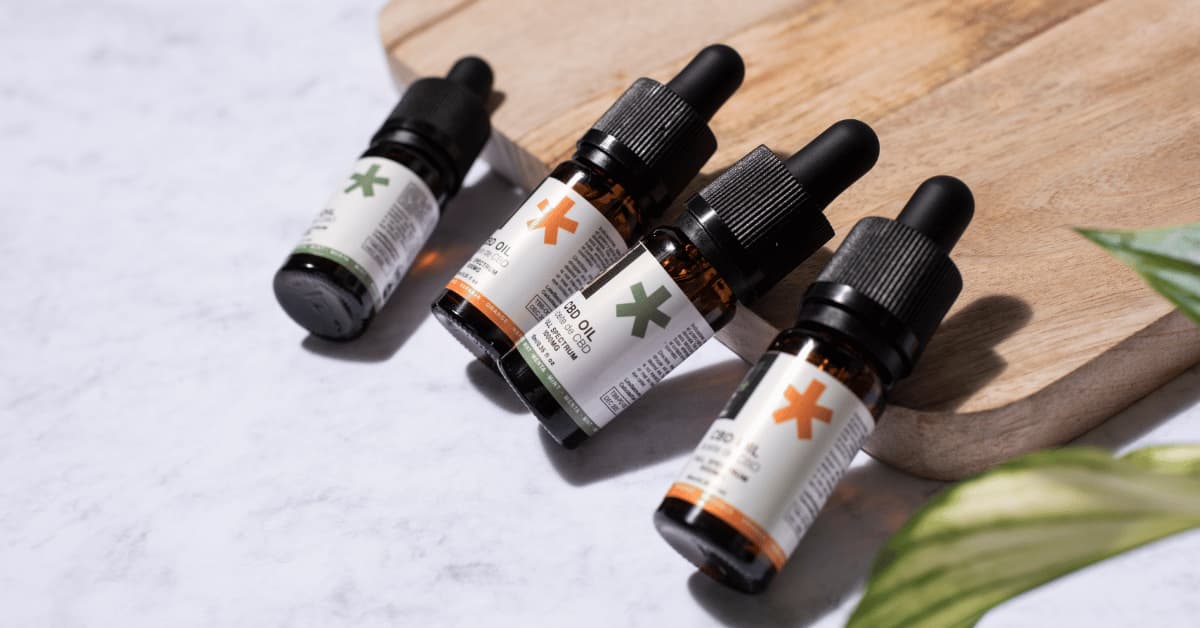
As with any treatment option, it is crucial to consult with a healthcare professional or medical expert before considering CBD or making any changes to your current treatment regimen. They can provide personalized guidance based on your unique needs and considerations.
While Benzodiazepines can provide short-term relief for social anxiety symptoms, it is important to consider non-medication options as well. Psychotherapy, in particular, can be highly effective in helping individuals manage social anxiety.
Two commonly used approaches are Cognitive-Behavioral Therapy (CBT) and Psychodynamic Therapy.
Cognitive-Behavioral Therapy (CBT)
CBT focuses on identifying and modifying negative thought patterns and behaviors associated with social anxiety.

It helps individuals develop more adaptive ways of thinking and behaving in social situations, leading to reduced anxiety. To learn more about CBT and its application in managing social anxiety, you can click here to access our introductory guide on Cognitive-Behavioral Therapy.
Psychodynamic Therapy
Psychodynamic Therapy aims to explore the unconscious factors and underlying emotions that contribute to social anxiety. By gaining insight into these deeper processes, individuals can better understand and manage their anxiety.
Additionally, making unconscious content conscious often leads to a reduction in symptoms. For an introductory guide to Psychodynamic Therapy and its relevance to social anxiety, simply click here.
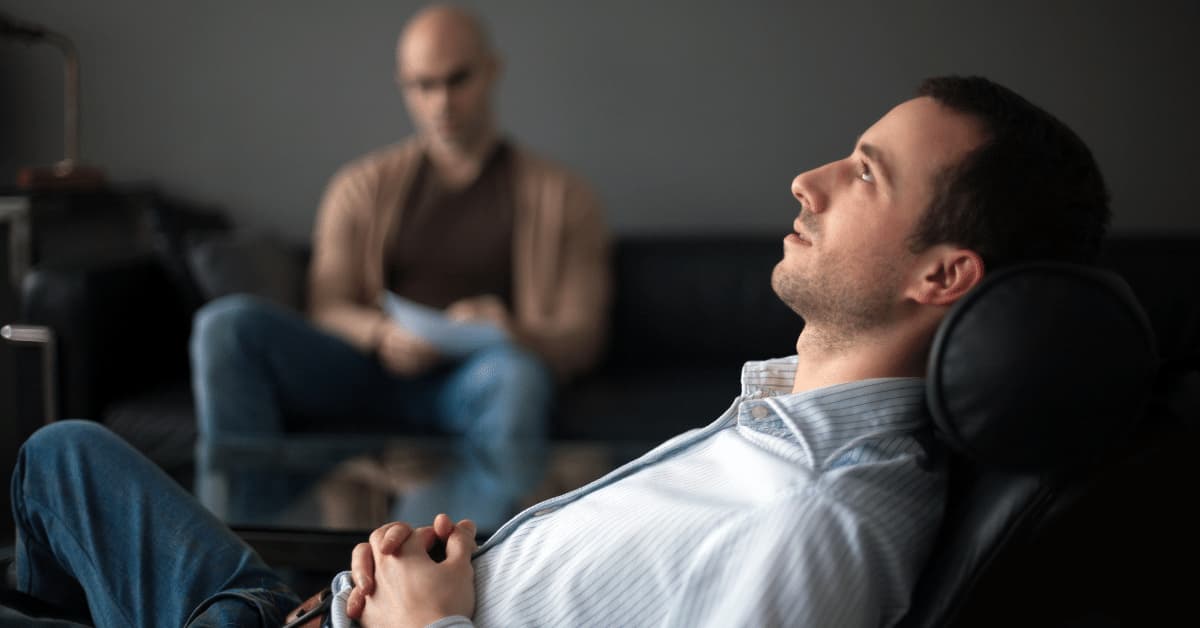
Practical Tools & Lifestyle Changes
In addition to therapy, relaxation techniques such as deep breathing exercises, mindfulness, and meditation can also be effective in reducing anxiety symptoms. These practices promote relaxation, self-awareness, and the ability to manage stress and anxiety.
Furthermore, making certain lifestyle changes, such as engaging in regular exercise, maintaining a healthy diet, and ensuring adequate sleep, can contribute to overall anxiety reduction.
We’ve compiled a comprehensive list of 20 practical tips and exercises designed to help you reduce your social anxiety. Click here to go to our article, where you’ll find downloadable PDFs for each recommendation, so you can easily integrate them into your daily routine.
It is crucial to understand that researchers and clinicians have pointed out that it is concerning that many individuals rely on benzodiazepines for an extended period without exploring evidence-based treatments such as psychotherapy, relaxation techniques, or serotonergic agents (Guina & Merrill, 2018).

The goal of social anxiety management, including the use of benzodiazepines, should be to promote overall well-being and address the underlying causes of anxiety, rather than solely relying on sedation.
Importance of a comprehensive treatment approach and individualized care
When it comes to managing social anxiety, it is crucial for you to approach it with a comprehensive treatment plan that takes into account your unique needs. Remember, your experience with social anxiety is different from others, and what works for someone else may not work for you.
That’s why seeking the guidance of a healthcare professional, such as a psychiatrist, psychologist, or therapist, is essential.
They can help you develop a personalized treatment approach tailored to your specific circumstances. This may involve a combination of medication, therapy, lifestyle changes, and other strategies.

Keep in mind that medication alone is not a cure for social anxiety. It should be combined with other therapeutic approaches to achieve long-term management and personal growth (Guina & Merrill, 2018).
By utilizing a comprehensive treatment approach and receiving individualized care, you can explore a range of options and discover what works best for you in managing social anxiety.
F. Benzodiazepines for Social Anxiety: The State of the Science
Before concluding this article with a couple of guidelines on how to discontinue the use of benzodiazepines and by summarizing the key takeaways, let’s quickly delve into the scientific evidence and ongoing debates surrounding the use of benzodiazepines for social anxiety.
This way, you get a clear picture of their potential benefits as well as limitations.

Efficacy in Addressing Symptoms of Social Anxiety
Benzodiazepines, specifically alprazolam and clonazepam, have demonstrated effectiveness in treating social anxiety disorder (e.g., Lydiard et al., 1988; Reither et al., 1990).
Studies have shown that these medications can effectively reduce anxiety, phobic avoidance, and social phobic symptoms in individuals with social phobia (Munjack et al., 1990; Davidson et al., 1993).

Clonazepam, in particular, has been found to be significantly more effective than a placebo, with a response rate of 78.3% compared to 20% for the placebo group.
When compared to cognitive-behavioral group therapy, clonazepam showed similar improvements (Otto et al., 2000).
These findings indicate that benzodiazepines, specifically clonazepam, is a suitable, effective, and well-tolerated treatment option for social phobia (Seedat & Stein, 2004).
Benzodiazepines Against Panic Attacks
Benzodiazepines have shown effectiveness in managing panic attacks (Noyes et al., 1984), which is particularly relevant for individuals with social anxiety who experience such episodes.
In clinical trials, alprazolam, a commonly used benzodiazepine, demonstrated significant improvement in reducing panic attacks, phobic fears, avoidance behavior, and anxiety symptoms (Ballenger et al., 1988; Noyes et al., 1988).
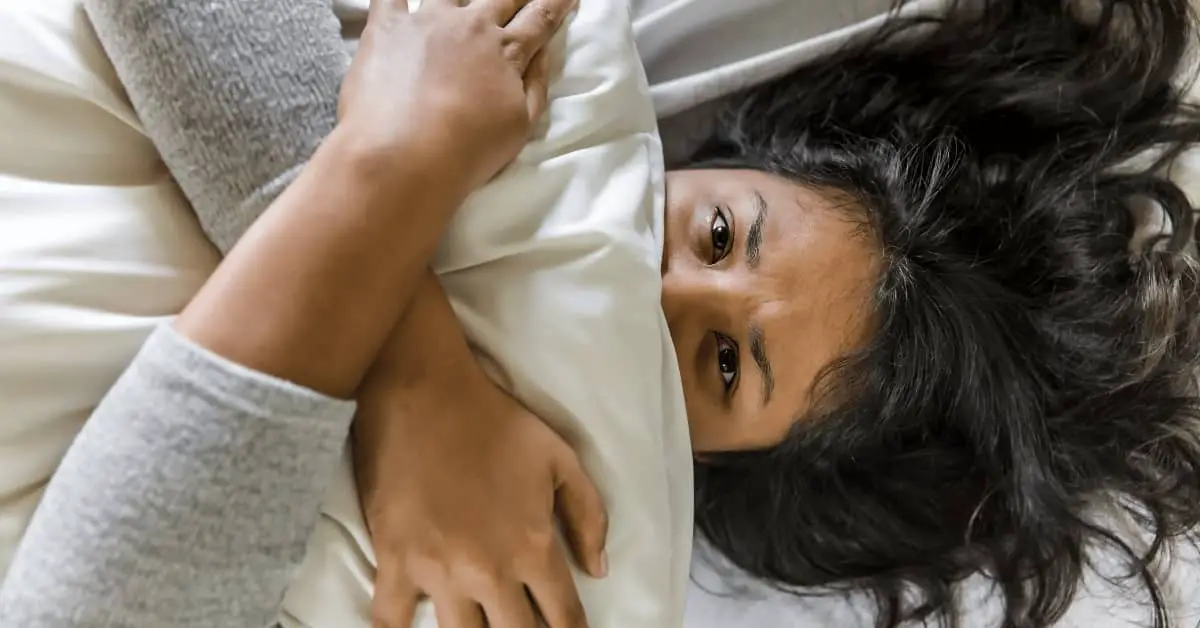
Studies comparing alprazolam to other medications, such as propranolol and lorazepam, have also found its superiority in treating panic disorder (Munjack et al. 1989; Schweizer et al., 1990).
Clonazepam, another benzodiazepine, has shown comparable efficacy to alprazolam in the treatment of panic disorder (Tesar et al., 1991).
Debating the Use of Benzodiazepines for Anxiety
The use of benzodiazepines in treating social anxiety disorder has sparked discussions among experts. Some studies suggest that benzodiazepines can be effective and have a low risk of abuse, challenging the belief that they shouldn’t be the first-line treatment for anxiety disorders (Silberman, 2014).
However, other experts raise concerns about factors like potential side effects, worsening depression, abuse risks, and difficulties with discontinuation (Pollack et al., 2014).
Researchers agree that more studies are needed to better understand the role of benzodiazepines in anxiety treatment. They emphasize the importance of comparing benzodiazepines with other treatments, studying specific patient groups, and developing guidelines for responsible prescribing.

These ongoing debates highlight the need for further research to provide clearer guidance on using benzodiazepines for social anxiety and other anxiety disorders. Healthcare professionals and researchers continue to explore the benefits, risks, and individual factors when considering benzodiazepine therapy.
G. Discontinuation of Benzodiazepine Use
If you are already being treated with benzodiazepines and are considering to discontinue their use, it is crucial to approach this decision with careful planning and support. Taking the necessary steps to safely discontinue these medications is important for your overall well-being.
Here are some essential tips to consider as you embark on the journey of benzodiazepine discontinuation:
Consult with your healthcare professional: Seek guidance from your doctor or psychiatrist before making any changes to your benzodiazepine regimen. They can provide personalized advice, monitor your progress, and make necessary adjustments.
Gradual tapering: Slowly reducing the dosage of benzodiazepines over time is recommended to minimize withdrawal symptoms. Work with your healthcare professional to create a tapering schedule that suits your needs, ensuring a smooth transition.
Monitor your symptoms: Keep track of any changes or symptoms during the tapering process. This information helps you and your healthcare professional assess progress and make adjustments as needed.
Seek support: Discontinuing benzodiazepine use can be challenging. Seek support from friends, family, or support groups to provide encouragement and understanding throughout the journey.
Practice stress-reducing techniques: Implement stress-reducing techniques like relaxation exercises, deep breathing, and mindfulness to manage anxiety during the discontinuation process.
Consider alternative therapies: Explore non-medication approaches, such as cognitive-behavioral therapy. CBT provides tools and techniques to cope with anxiety and support the discontinuation of benzodiazepine use.

In fact, a recent study by Takeshima et al. (2021) explored the effectiveness of CBT in discontinuing benzodiazepine use among individuals with anxiety disorders.
The review included three randomized controlled trials and found that combining CBT with gradual tapering of benzodiazepines resulted in a higher proportion of patients successfully discontinuing their medication compared to tapering alone.
Both short-term (3 months after treatment) and long-term (6 to 12 months after treatment) outcomes showed positive results.
While further studies with larger sample sizes are needed for definitive conclusions, CBT shows promise as a non-medication approach to help individuals discontinue benzodiazepine use for anxiety disorders.
Consulting with a healthcare professional or therapist can provide personalized guidance on whether CBT is suitable for your specific needs.

H. Takeaways
To sum up what we have discussed in this article, let’s highlight the key points to keep in mind regarding the use of benzodiazepines for social anxiety:
- Benzodiazepines are psychoactive medications that can help manage social anxiety by enhancing the effects of GABA in the brain.
- Commonly prescribed benzodiazepines for social anxiety include several well-known medications, such as Alprazolam (Xanax, Niravam), Diazepam (Valium), Lorazepam (Ativan), Clonazepam (Klonopin), and Bromazepam (Lexotan).
- The benefits of Benzodiazepines include their fast-acting nature, providing quick relief during challenging social situations, and reducing physical symptoms associated with anxiety.
- However, it is important to use Benzodiazepines sparingly and for short-term relief only, as long-term use can lead to dependence, tolerance, and withdrawal symptoms.
- Alternative approaches such as therapy, lifestyle changes, and individualized care are essential components of a comprehensive treatment plan for social anxiety.
- Never take Benzodiazepines without the guidance of a healthcare professional. It is crucial to consult a healthcare professional to determine the appropriate use, dosage, and duration of Benzodiazepines for your specific needs.
- Responsible and informed use of Benzodiazepines, in conjunction with other strategies, can support individuals in managing social anxiety effectively. Remember that it is crucial to never self-medicate.
To gain a thorough understanding of all treatment options of social anxiety, we highly recommend you read our most-comprehensive resource by clicking here.
Also: For more information about the management of social anxiety disorder, we invite you to sign up for our Free 7-Day Email Course, which covers everything you need to know if you are affected by social anxiety. To learn more and sign up, simply click on the button below.
Participate in a Research Study!
If you are affected by social anxiety, you can help researchers and clinicians better understand the condition and improve treatment efficacy by participating in a research study.
To take part, you can click here to open a short, quick survey in a new browser window, or simply fill out the form provided below. Thank you for your participation!
Ballenger, J. C., Burrows, G. D., DuPont, R. L., Jr, Lesser, I. M., Noyes, R., Jr, Pecknold, J. C., Rifkin, A., & Swinson, R. P. (1988). Alprazolam in panic disorder and agoraphobia: results from a multicenter trial. I. Efficacy in short-term treatment. Archives of general psychiatry, 45(5), 413–422. https://doi.org/10.1001/archpsyc.1988.01800290027004
Davidson, J. R., Potts, N., Richichi, E., Krishnan, R., Ford, S. M., Smith, R., & Wilson, W. H. (1993). Treatment of social phobia with clonazepam and placebo. Journal of clinical psychopharmacology, 13(6), 423–428.
Fliegel, D. K., & Lichenstein, S. D. (2022). Systematic literature review of human studies assessing the efficacy of cannabidiol for social anxiety. Psychiatry research communications, 2(4), 100074. https://doi.org/10.1016/j.psycom.2022.100074
Gelernter, C. S., Uhde, T. W., Cimbolic, P., Arnkoff, D. B., Vittone, B. J., Tancer, M. E., & Bartko, J. J. (1991). Cognitive-behavioral and pharmacological treatments of social phobia. A controlled study. Archives of general psychiatry, 48(10), 938–945. https://doi.org/10.1001/archpsyc.1991.01810340070009
Guina, J., & Merrill, B. (2018). Benzodiazepines I: Upping the Care on Downers: The Evidence of Risks, Benefits and Alternatives. Journal of clinical medicine, 7(2), 17. https://doi.org/10.3390/jcm7020017
Helmus, T. C., Tancer, M., & Johanson, C. E. (2005). Reinforcing effects of diazepam under anxiogenic conditions in individuals with social anxiety. Experimental and clinical psychopharmacology, 13(4), 348–356. https://doi.org/10.1037/1064-1297.13.4.348
Hindmarch I. (2009). Cognitive toxicity of pharmacotherapeutic agents used in social anxiety disorder. International journal of clinical practice, 63(7), 1085–1094. https://doi.org/10.1111/j.1742-1241.2009.02085.x
Lydiard, R. B., Laraia, M. T., Howell, E. F., & Ballenger, J. C. (1988). Alprazolam in the treatment of social phobia. The Journal of clinical psychiatry, 49(1), 17–19.
Melaragno A. J. (2021). Pharmacotherapy for Anxiety Disorders: From First-Line Options to Treatment Resistance. Focus (American Psychiatric Publishing), 19(2), 145–160. https://doi.org/10.1176/appi.focus.20200048
Noyes, R., Jr, Anderson, D. J., Clancy, J., Crowe, R. R., Slymen, D. J., Ghoneim, M. M., & Hinrichs, J. V. (1984). Diazepam and propranolol in panic disorder and agoraphobia. Archives of general psychiatry, 41(3), 287–292. https://doi.org/10.1001/archpsyc.1984.01790140077009
Noyes, R., Jr, DuPont, R. L., Jr, Pecknold, J. C., Rifkin, A., Rubin, R. T., Swinson, R. P., Ballenger, J. C., & Burrows, G. D. (1988). Alprazolam in panic disorder and agoraphobia: results from a multicenter trial. II. Patient acceptance, side effects, and safety. Archives of general psychiatry, 45(5), 423–428. https://doi.org/10.1001/archpsyc.1988.01800290037005
Munjack, D. J., Baltazar, P. L., Bohn, P. B., Cabe, D. D., & Appleton, A. A. (1990). Clonazepam in the treatment of social phobia: a pilot study. The Journal of clinical psychiatry, 51 Suppl, 35–53.
Munjack, D. J., Crocker, B., Cabe, D., Brown, R., Usigli, R., Zulueta, A., McManus, M., McDowell, D., Palmer, R., & Leonard, M. (1989). Alprazolam, propranolol, and placebo in the treatment of panic disorder and agoraphobia with panic attacks. Journal of clinical psychopharmacology, 9(1), 22–27.
Otto, M. W., Pollack, M. H., Gould, R. A., Worthington, J. J., 3rd, McArdle, E. T., & Rosenbaum, J. F. (2000). A comparison of the efficacy of clonazepam and cognitive-behavioral group therapy for the treatment of social phobia. Journal of anxiety disorders, 14(4), 345–358. https://doi.org/10.1016/s0887-6185(00)00027-x
Pollack, M. H., Van Ameringen, M., Simon, N. M., Worthington, J. W., Hoge, E. A., Keshaviah, A., & Stein, M. B. (2014). A double-blind randomized controlled trial of augmentation and switch strategies for refractory social anxiety disorder. The American journal of psychiatry, 171(1), 44–53. https://doi.org/10.1176/appi.ajp.2013.12101353
Reiter, S. R., Pollack, M. H., Rosenbaum, J. F., & Cohen, L. S. (1990). Clonazepam for the treatment of social phobia. The Journal of clinical psychiatry, 51(11), 470–472.
Schweizer, E., Pohl, R., Balon, R., Fox, I., Rickels, K., & Yeragani, V. K. (1990). Lorazepam vs. alprazolam in the treatment of panic disorder. Pharmacopsychiatry, 23(2), 90–93. https://doi.org/10.1055/s-2007-1014489
Seedat, S., & Stein, M. B. (2004). Double-blind, placebo-controlled assessment of combined clonazepam with paroxetine compared with paroxetine monotherapy for generalized social anxiety disorder. The Journal of clinical psychiatry, 65(2), 244–248.
Silberman E. K. (2014). The role of benzodiazepines in treating social anxiety disorder. The American journal of psychiatry, 171(7), 795. https://doi.org/10.1176/appi.ajp.2014.14010048
Takeshima, M., Otsubo, T., Funada, D., Murakami, M., Usami, T., Maeda, Y., Yamamoto, T., Matsumoto, T., Shimane, T., Aoki, Y., Otowa, T., Tani, M., Yamanaka, G., Sakai, Y., Murao, T., Inada, K., Yamada, H., Kikuchi, T., Sasaki, T., Watanabe, N., … Takaesu, Y. (2021). Does cognitive behavioral therapy for anxiety disorders assist the discontinuation of benzodiazepines among patients with anxiety disorders? A systematic review and meta-analysis. Psychiatry and clinical neurosciences, 75(4), 119–127. https://doi.org/10.1111/pcn.13195
Tesar, G. E., Rosenbaum, J. F., Pollack, M. H., Otto, M. W., Sachs, G. S., Herman, J. B., Cohen, L. S., & Spier, S. A. (1991). Double-blind, placebo-controlled comparison of clonazepam and alprazolam for panic disorder. The Journal of clinical psychiatry, 52(2), 69–76.
Versiani, M., Nardi, A. E., Figueira, I., Mendlowicz, M., & Marques, C. (1997). Double-blind placebo controlled trial with bromazepam in social phobia. J. bras. psiquiatr, 167-71.
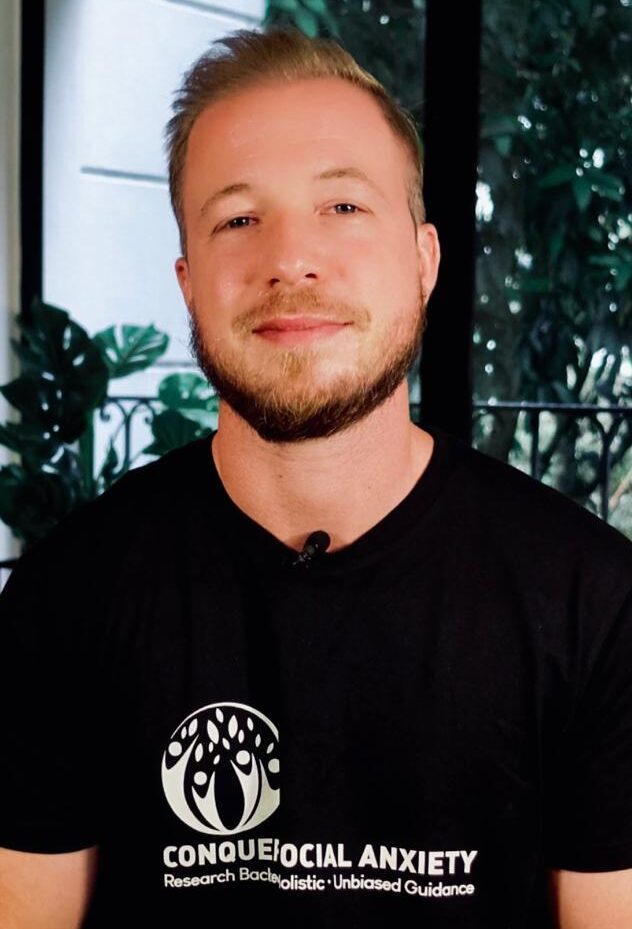
About the Author: Martin Stork
Martin is a professional psychologist with a background in physical therapy. He has organized and led various support groups for people with social anxiety in Washington, DC and Buenos Aires, Argentina. He is the founder of Conquer Social Anxiety Ltd, where he operates as a writer, therapist and director. You can click here to find out more about Martin.








